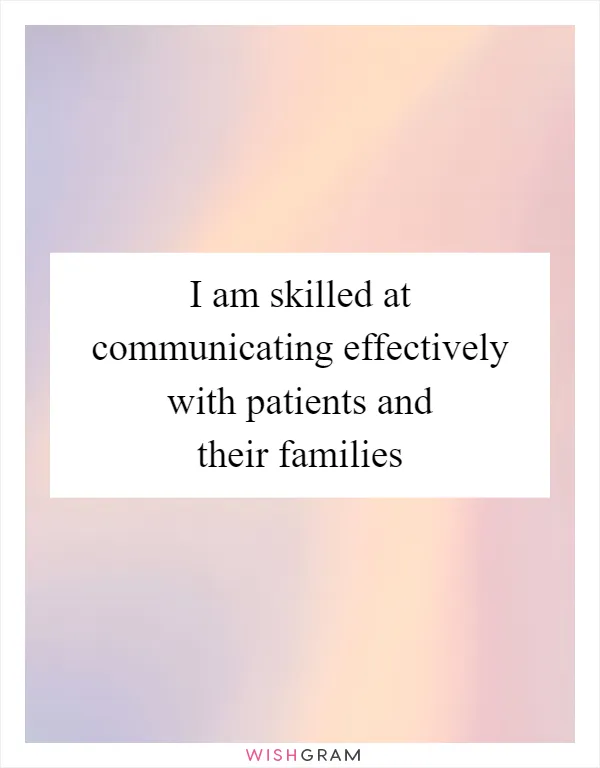I am skilled at communicating effectively with patients and their families
As a nurse, one of the most crucial skills you possess is the ability to communicate effectively with patients and their families. Your role goes beyond providing medical care; it involves building trust, offering support, and ensuring that patients and their loved ones feel heard and understood. By mastering the art of communication, you create a positive and comforting environment that promotes healing and enhances the overall patient experience.
Effective communication begins with active listening. By attentively listening to patients and their families, you demonstrate empathy and show that their concerns and needs are valued. This allows you to gather important information, understand their emotions, and address any fears or anxieties they may have. By actively engaging in conversations, you can provide reassurance, answer questions, and offer guidance, ultimately fostering a sense of trust and confidence in your care.
In addition to listening, clear and concise verbal communication is essential. By using simple language and avoiding medical jargon, you ensure that patients and their families fully comprehend the information you provide. This empowers them to actively participate in their care decisions and treatment plans. By explaining procedures, medications, and potential side effects in a way that is easily understood, you alleviate any confusion or apprehension, enabling patients and their families to make informed choices.
Non-verbal communication is equally important. Your body language, facial expressions, and tone of voice can convey empathy, compassion, and understanding. By maintaining eye contact, using a gentle tone, and offering a comforting touch when appropriate, you create a sense of connection and establish a therapeutic relationship. Non-verbal cues can also help you gauge patients' emotional state, allowing you to respond accordingly and provide the necessary support.
Furthermore, effective communication extends beyond the immediate interactions with patients and their families. It involves collaborating with interdisciplinary teams, sharing information, and advocating for your patients' needs. By effectively communicating patient updates, concerns, and progress to other healthcare professionals, you ensure continuity of care and promote a holistic approach to treatment. Your ability to articulate the patient's perspective and advocate for their well-being is invaluable in achieving the best possible outcomes.
